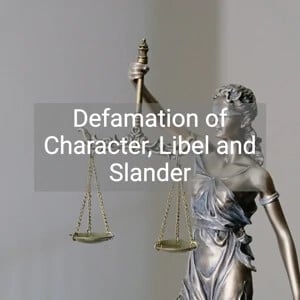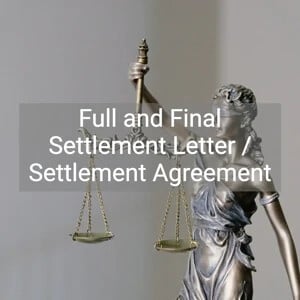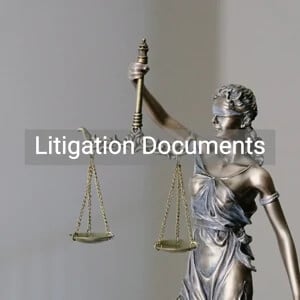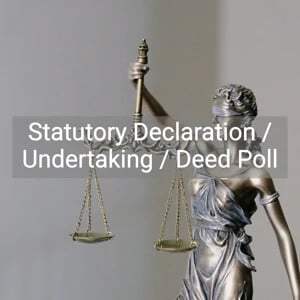Defamation of Character, Libel and Slander


Defamation, libel, and slander belong to the same field of law and are often confused with one another. Defamation is also the general area of law that covers libel and slander, and they all relate to communications that falsely degrade the character or reputation of another person. It is an area of law that protects people’s reputations and allows people to sue when they are misrepresented. A person who is damaged by a false statement may bring a defamation lawsuit.
Defamation is a spoken, written, or published untrue statement that damages one’s reputation. Defamation of character happens when something untrue and damaging is presented as a fact to someone else. In general, defamatory statements:
Libel is a written defamatory statement that is found in print. Libel refers to a written or digital defamatory statement or false representation that conveys an unjustly unfavourable impression. Libel only occurs in written statements (including statements in digital media). As such, in certain jurisdictions, spoken statements made on TV, radio, or in other digital media that create a permanent record could constitute libel as well as slander.
Slander is a spoken or oral defamatory statement that is found in speech. Slander refers to a false spoken statement that is made to cause people to have a bad opinion of someone. Slander can be published in any media. It can be a comment on a blog, in a speech, or a statement on TV.
Another important difference between libel and slander is that libel is actionable per se (that is, it is presumed to have damages on the plaintiff), whereas, in the case of slander, the plaintiff must prove the damages unless the slander relates to the following matters:
In other words, the standard for a plaintiff to prove slander is higher since the plaintiff has to demonstrate to the court that he/she suffered some loss or damages (except under the four items above).
In addition to the requirement to show damages for slander, other essential elements of defamation are listed below:
Another key part of the defamation case is that the parties made false statements for a certain purpose. The statement must be made in the knowledge that it is untrue or disregard the facts. In general, it is easier for an ordinary citizen to prove defamation than a public figure since a higher standard would apply. The standard is whether or not reasonable persons in society think or opine that the words or statements have defamed the victim.
Telling the truth is an absolute defence against defamation. If what was said is true, then there is no case for defamation. If the case was brought by a public figure, it is a defence if one can prove that one was not negligent in making the statement based on available public information.
Statements made in the course of a Shareholders' meeting are protected by `qualified privilege', i.e. the maker has a good defence against an action for defamation provided certain conditions are met. The statement must be made in good faith, without malice, and must be on a subject in which the members have a legitimate interest. In addition, public officials also enjoy qualified privileges when making statements in the legislative assembly.
The publisher of defamatory material is generally subject to the same penalties as the person who originally made the defamatory statement. At common law, even though a member may be able to rely on a defence of qualified privilege in respect of a defamatory statement made in the course of a meeting, a representative of the press would not be able to do so. However, the defence of qualified privilege is extended to reports in the press of the meetings of public companies provided that they fairly and accurately reflect the proceedings.
There are different types of letters one can write in relation to defamation. It can be a defamation claim or a letter before action. If the defamation is continuous, one can prepare a cease and desist letter to the offender.
In general, the purpose of a defamation complaint is to notify the offender that one is ready to file a claim in court unless the offender is willing to negotiate a fair and reasonable settlement to save both parties time and costs of a protracted legal proceeding. Litigation costs are expensive with unpredictable results, which is particularly true for defamation cases because defamation is largely fact-based.
The request should begin with an introduction, then provide a discussion of the facts, provide the legal basis of the claim, specify the damage suffered, and the proposed settlement.
As with all letters relating to potential litigations, one should always add “Privileged and Confidential” to the subject line. The subject line should clearly include a description of the matter – e.g. “Defamatory Statement made on Media on Date”.
The introduction should explain who the victim is and the purpose of writing the letter. If the purpose of the letter is to agree on a settlement with the offender, then state so and that one is willing to discuss solutions.
State the facts in chronological order in accordance with each defamatory statement. State clearly the date and where each defamatory statement is made and how they do not correspond to the actual facts. One should provide the offender with sufficient facts to make a reasonable decision on whether to proceed with the settlement negotiation.
4. State the Law
Briefly discuss the applicable laws relating to defamation and how they apply to the facts of the case. However, one should be careful not to give away too much information to help the other side to build their case.
As mentioned previously, one will need to prove actual damage per se in relation to slander. However, one can conduct a calculation of damages even if it is not required by the court. Calculation of damages depends heavily on your specific facts and circumstances and may be complicated.
Actual Loss – this is probably the easiest to calculate. This includes your losses in property, business, trade, profession, or occupation, including any loss of business as a result of the damage to your reputation. In addition, compensation for mental damage can also be calculated – e.g. costs of seeing a psychologist as a result of the defamation.
Presumptive Damage – this can be nominal but usually, the offender is required to issue an apology and a retraction/correction of the defamatory statements.
Intangible Damage – this is more difficult to calculate, in particular the pain and suffering relating to emotional damage and reputation damage.
Punitive Damage – this is only applicable in certain jurisdictions as a punishment to the offender.One should try and include terms that are fair and reasonable to facilitate settlements. If the defamatory statements are persisting, then one should also ask the offender to cease and desist. It is also usual for the victim to demand a public apology from the offender as part of the settlement.
As a letter before action, one may wish to set a deadline for the offender to respond, usually around 2 weeks from the date of the letter. One should reiterate the willingness to reach a fair and reasonable settlement, but if no response or settlement is reached by the deadline, one will have no hesitation in filing a defamation lawsuit in court.
It is generally not necessary to hire a lawyer until the filing of the defamation claim. However, it is generally easier to get the offender to take the matter seriously if the defamatory letter comes from a law firm.
A law firm can assist in preparing the case for court, by collecting evidence of defamation, preparing the legal arguments, calculating the damages caused, and filing the defamation lawsuit with a court at the appropriate jurisdiction.





Not the right document?
Don’t worry, we have thousands of documents for you to choose from: